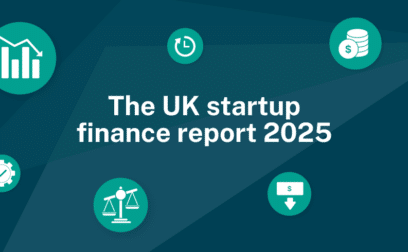AUTHOR: Tobias Møller
Cryptocurrencies have been big news in technology. How are they affecting everyday banking, supply chain and healthcare?
Blockchain has been a buzzword for a few years now. It is the technology that underpins cryptocurrencies such as Bitcoin, Ethereum and hundreds of other currencies that are now on the market.
While the headlines have often been about individuals making and losing fortunes overnight on the volatile crypto markets, there are many reasons why businesses are finding value in the technology.
Let’s start with a quick overview of what a blockchain is.
A blockchain is a decentralized ledger of all transactions across a peer-to-peer network. The technology behind the blockchain enables participants to confirm transactions without a need for a central clearing authority.
It facilitates the process of recording transactions and tracking assets. Virtually anything of value can be tracked and traded on a blockchain network, reducing costs for everyone involved.
How do you confirm transaction validity if no central authority is involved?
Proof of work was the first solution to this challenge. Proof of work is a consensus mechanism used to confirm and record cryptocurrency transactions. The work comes when adding a new block of transactions to the blockchain. The work, in this case, is generating a hash (a long string of characters) that matches the target hash for the current block. Crypto miners around the world compete to win the right to add that block to the existing blockchain and receive rewards.
Finding the target hash is like using a trial-and-error methodology to solve a hard puzzle. This means mining capacity depends in large on a miner’s computational power to generate computations quickly.
The inefficiency of finding one winner produces a lot of wasted work and therefore wasted energy leading to a heavy environmental impact, which Bitcoin mining has become known for.
The reason why mining works well is that finding the target hash is difficult but verifying it isn’t. This prevents manipulation of the ledger and at the same time keeps it easy for other miners to check if it is correct.
The main benefit of the blockchain is increased transparency attained through the ledger being public and secured by participants. This also makes it highly secure, irreversible and accurate.
Another popular consensus mechanism is proof of stake: it’s like proof of work but instead of finding the target hash, it chooses transaction validators, which are nodes responsible for the provision of infrastructure and validating new blocks and adding them to the blockchain, based on how many coins they’ve staked to the network. This reduces the environmental impact but is less secure than the proof of work model since parties with a large holding of the blockchain’s native token could have too much power.
Now we know how the blockchain functions work.
What can the blockchain be used for?
Blockchain is mainly known as the technology that allows for the existence of crypto. A cryptocurrency is a medium of exchange like gold but is digital and recorded on the blockchain making it irreversible and transparent. The most well-known is Bitcoin. Bitcoin has become a store of value where transfers online are possible. Using the blockchain for making transactions makes it possible to transfer value online without the need for a middleman, such as a bank. This allows markets and transfers to be open 24/7. At its core, cryptocurrency was designed as digital money to be used over the internet.
Today that has changed as new cryptocurrencies are created every day for different applications. An example of a cryptocurrency with a different use case could be Ethereum which is a decentralized blockchain that establishes a peer-to-peer network that securely verifies and executes application code, called smart contracts.
Blockchain’s potential applications
Many companies today are trying to create successful business models using blockchain technology to disrupt large markets.
Cryptocurrency is only of the many possible applications for the blockchain. Applications such as healthcare, financial services and supply chain management are new areas where the blockchain could increase transparency, reduce costs, and increase effectiveness.
- Supply chain
Using blockchain technology enables each participant participating in the supply chain to have full oversight of the entire operation. It enables efficient tracing of the origin of goods from a specific manufacturer to a store or vice versa. The data is accurate and credible which makes it possible to authenticate and quality check products quicker.
Automation of billing and payment is another area in the supply chain where innovation by using the blockchain could reduce costs by letting the whole operation see where products are moving, bills are being paid and invoices are sent by the ledger being public.
Mercedes Benz launched Acentrik, which is a blockchain data sharing platform, to explore how blockchain could be used to share supply chain data among its manufacturing hubs and partners to increase transparency and efficiency.
- Financial services
With transfers, bills and invoices being registered on the blockchain all involved parties are participating in a transparent financial matter. Faster and cheaper settlements due to automation and the blockchain’s ability to process transactions could shave billions of dollars from transaction costs and fees.
Facilitating payments is highly profitable for banks. It’s expected that B2B cross-border transactions reach a value of $35T in 2022
Ripple is a blockchain company disrupting the banking industry by improving the efficiency of cross-border payments. By using blockchain technology they can create a secure and cheap way to process payments internationally. Traditional international bank transfers take up to five days compared to the blockchain system ripple uses, which does it in three seconds. That is why they have already partnered with financial institutions such as Santander and Western Union.
- Healthcare
Today patient data is stored in multiple places and letting the right people access it at the right time is a lot of work. Healthcare institutions suffer from an inability to securely share data across platforms. Easier sharing of the data for institutions could improve waiting times, more accurate diagnoses, and more cost-effective care.
Patients’ encrypted health information could be shared with multiple providers without the risk of privacy breaches on the blockchain. For this to work, some degree of centralization is needed for it to fit under regulatory needs.
Synaptic Health Alliance has brought institutions such as UnitedHealth Group, Humana, Quest, and others, together. By sharing this provider information, these companies can reduce work, since data is stored and updated in a shared, accessible database. By sharing the data, they can make sure their provider directories are up to date.
Conclusion
You don’t have to be an investor in cryptocurrencies to find that they are impacting your business life. You may find that blockchain is the technology behind your everyday banking, supply chain or trip to the doctor.
Understanding the nature of blockchain and how it can be used may open opportunities to your business to work faster, with more security and fewer delays.
For businesses that are particularly driven by IP value, there are clear benefits to having this information secured on a shared ledger system.


































 yet? Register here!
yet? Register here!